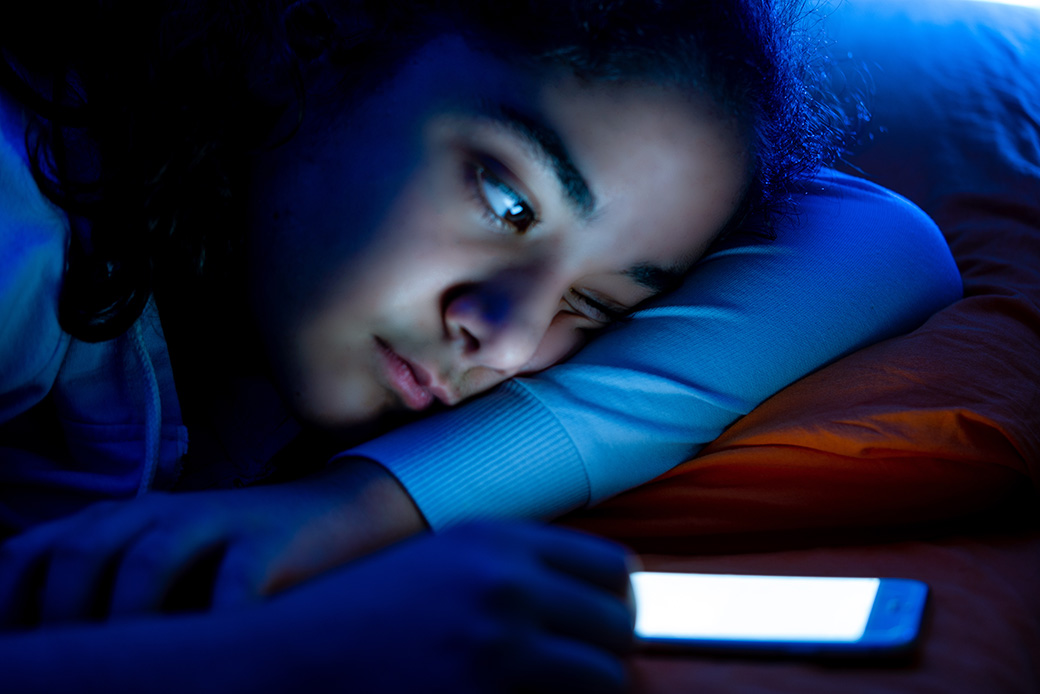The National Sleep Foundation (NSF) and American Academy of Sleep Medicine (AASM) recommend that teenagers obtain 8-10 hours of sleep a night. However, teens are notorious for not getting enough sleep and the average number is closer to 6-7 hours. There are many factors that contribute to sleep loss in tired teens including: overscheduled activities, academic demands, hormonal changes, and technology overuse.
As a result, most adolescents are sleep deprived. This can cause a myriad of problems including irritable mood, increase in high risk behaviors, problems with attention and memory, and impaired academic performance. Teenagers are also in the highest risk category for falling asleep at the wheel, making new drivers who are sleep deficient at particular risk of automobile accidents.
Parents play an important role in helping teens get the sleep they need. Many will sleep much better if they develop the habits of good sleep hygiene. Sleep hygiene includes basic tips that help develop healthy bedtime behaviors. Because teenagers are in a unique developmental stage, the following sleep hygiene recommendations are suggested with them in mind.
Limit screens in the bedroom
Texting, social media, Snapchat, and TikTok are the arch nemesis of sleep. Research shows that screen use before sleep causes sleep disruption in three main ways: behavioral bedtime delay (time on screens push bedtime back), psychological stimulation from media content, and light emission from devices that can cause arousal. Ditch the devices and leave them outside the bedroom to charge at night.
Exercise early
Regular exercise, especially in the morning or early afternoon, can improve sleep quality by raising the body temperature. Later in the day when the internal temperature drops back to normal, this triggers drowsiness and aides with sleep onset.
Skip the Starbucks
Avoid any caffeine including coffee, tea, soda, and caffeinated energy drinks after 3pm. Caffeine can make it difficult to fall asleep later in the evening and can create a pattern of overuse.
Set a consistent wake up time
Going to bed and waking up around the same time every day prepares the body to fall asleep and wake up when you need it to. This even means keeping bedtimes and wake up times on the weekends fairly consistent with the weekday.
Create the right conditions
The best conditions for sleep include a room that is dark, cool, and quiet. Adding dark curtains or a sound machine can help. Avoid doing stressful activities, including schoolwork, in the bed or bedroom.
No napping
While napping can seem like a good way to catch up on sleep, it typically backfires. That is because napping will make it difficult to fall asleep later. Avoid taking any daytime naps and especially any nap longer than an hour or after 3pm.
It can sometimes be difficult to determine the cause of a teen’s sleep problems. The majority of sleep problems will resolve with the consistent practice of the above recommendations. If sleep problems continue, seek guidance from your family doctor or pediatrician. They may recommend further assessment with a sleep specialist or psychologist.

